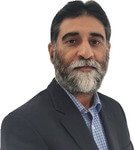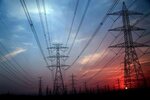02/24/2009
Special Edition: World Wind Energy Report 2008 (Part 2)
This is part two in the series "Special Edition:World Wind Energy Report 2008"
Diversification continues:
This development goes hand in hand with a general diversification process which can be watched with today 16 markets having installations of more than 1’000 MW, compared with 13 countries one year ago. 32 countries have more than 100 MW installed, compared with 24 countries three years ago.
Altogether 76 countries are today using wind energy on a commercial basis. Newcomers on the list are two Asian countries, Pakistan and Mongolia, which both for the first time installed larger grid-connected wind turbines.
Increasing growth rates:
An important indicator for the vitality of the wind market is the growth rate in relation to the installed capacity of the previous year. The growth rate went up steadily since the year 2004, reaching 29,0 % in 2008, after 26,6 % in 2007, 25,6 % in the year 2006 and 23,8 % in 2005. However, this increase in the average growth rate is mainly due to the fact that the two biggest markets showed growth rates far above the average: USA 50 % and China 107 %. Bulgaria showed the highest growth rate with 177 %, however, starting from a low level. Also Australia, Poland, Turkey and Ireland showed a dynamic growth far above the average.
Wind energy as an answer to the global crises:
In light of the threefold global crises mankind is facing currently – the energy crisis, the finance crisis and the environment/climate crisis – it is becoming more and more obvious that wind energy offers solutions to all of these huge challenges, offering a domestic, reliable, affordable and clean energy supply.
At this point of time it is difficult to predict the short-term impacts of the credit crunch on investment in wind energy. However, currently smaller projects under stable policy frameworks like well-designed feed-in tariffs are less affected by the credit crunch than higher-risk investments e.g. in large offshore wind farms or under unstable political frameworks and in countries which are seen as not offering sufficient legal stability.
Dont miss part three in this series. For more information please contact Trevor Sievet at ts@windfair.net
Diversification continues:
This development goes hand in hand with a general diversification process which can be watched with today 16 markets having installations of more than 1’000 MW, compared with 13 countries one year ago. 32 countries have more than 100 MW installed, compared with 24 countries three years ago.
Altogether 76 countries are today using wind energy on a commercial basis. Newcomers on the list are two Asian countries, Pakistan and Mongolia, which both for the first time installed larger grid-connected wind turbines.
Increasing growth rates:
An important indicator for the vitality of the wind market is the growth rate in relation to the installed capacity of the previous year. The growth rate went up steadily since the year 2004, reaching 29,0 % in 2008, after 26,6 % in 2007, 25,6 % in the year 2006 and 23,8 % in 2005. However, this increase in the average growth rate is mainly due to the fact that the two biggest markets showed growth rates far above the average: USA 50 % and China 107 %. Bulgaria showed the highest growth rate with 177 %, however, starting from a low level. Also Australia, Poland, Turkey and Ireland showed a dynamic growth far above the average.
Wind energy as an answer to the global crises:
In light of the threefold global crises mankind is facing currently – the energy crisis, the finance crisis and the environment/climate crisis – it is becoming more and more obvious that wind energy offers solutions to all of these huge challenges, offering a domestic, reliable, affordable and clean energy supply.
At this point of time it is difficult to predict the short-term impacts of the credit crunch on investment in wind energy. However, currently smaller projects under stable policy frameworks like well-designed feed-in tariffs are less affected by the credit crunch than higher-risk investments e.g. in large offshore wind farms or under unstable political frameworks and in countries which are seen as not offering sufficient legal stability.
Dont miss part three in this series. For more information please contact Trevor Sievet at ts@windfair.net
- Source:
- WWEA
- Author:
- Edited by Trevor Sievert, Online Editorial Journalist / Author: WWEA Staff
- Email:
- ts@windfair.net
- Link:
- www.windfair.net/...
- Keywords:
- WWEA, wind energy, renewable energy, wind turbine, wind power, wind farm, rotorblade, onshore, offshore


























